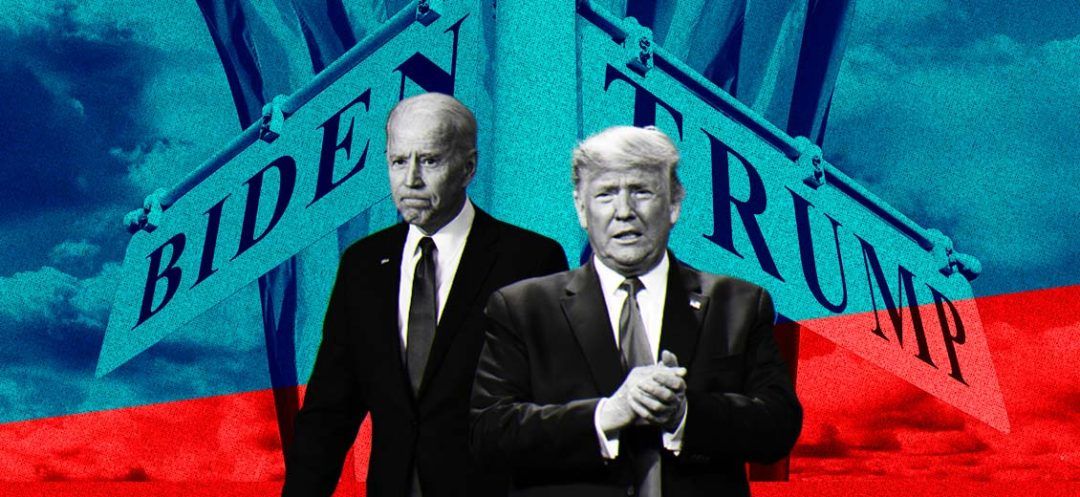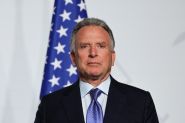- Home
- Middle East
- Biden-Trump: What Are the Differences?

Whether US President Joe Biden continues his presidential race towards the White House or not – due to the political and public pressures following a presidential debate in which he did not perform well – it is clear that unprecedented turning points have emerged in the presidential battle.
Although President Biden addressed many topics in the debate and focused on what he achieved during his first term, what stuck in the viewers' minds were his repeated stumbles and complete lack of focus in his speech, along with his weak voice and inability to find the necessary words and phrases to express his political stance.
All this has put the US Democratic Party in an unprecedented predicament, as changing the “horse” a few months before the presidential race is a risky adventure. Besides, it would set a precedent by excluding a sitting US president from seeking a second term at the peak of his electoral campaign.
The bigger problem is that the Democratic Party faces a fierce competitor from the Republican Party, former President Donald Trump. He differs in approach, style and political ethics from the overall American political establishment, which is based on certain constants and foundations rarely breached from outside its ranks. Yet, Trump succeeded in doing so, although this does not necessarily mean it is a good or a bad thing.
Some say there are certain “constants” in US politics that any sitting president goes by, regardless of their affiliation. These “constants” include foreign relations and general strategies towards the world, and even in several domestic policies and hot issues related to social security, healthcare, job opportunities, the role of major corporations in the economy and other topics.
But it is clear that Trump “tampered” with all those constants. Indeed, he adopted non-traditional approaches in many vital foreign policy issues, such as meeting with North Korean President Kim Jong Un and crossing the “red line” by going into North Korean territory, an unprecedented move.
The fact that Trump built “acceptable” relations outside traditional frameworks with both Moscow and Beijing is unprecedented. He boasted about the relationships in question, while simultaneously keeping the commercial competition with China alive in many areas where the two countries compete for global economic leadership.
Trump's withdrawal from the Paris Climate Agreement and his unilateral withdrawal from the nuclear agreement with Tehran caused significant confusion among his European allies, who he often viewed disdainfully. He considered that Europe owes its security and stability to Washington. Evidently, Biden turned back the clock on most of those issues and restored warmth to US-European relations.
The world will not be the same if Trump returns to the White House, whether regarding Ukraine, the conflict in the Middle East, or relations with Russia, China, India and Europe. Tension will also reignite US-Iran relations, given Trump's determination to completely exclude diplomacy from this issue.
The world is closely watching the developments of the US presidential campaign. Firstly, due to the return of a former president whose proposals and projects spark controversy. Secondly, because the opposing candidate is suffering from health and mental decline, reflected daily in unintended slips of the tongue that cast doubt on his mental and physical abilities to hold the most important leadership position in the world.
All in all, America is America. Some consider it the home of the free, while others view it as the leader of imperialism.
Read more




Comments